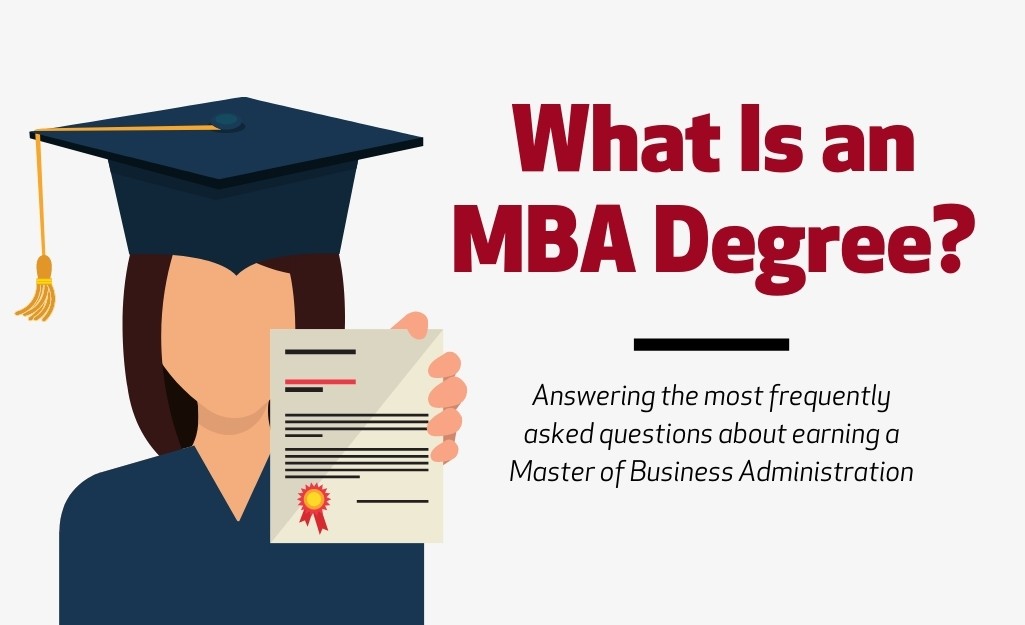Choosing the right MBA (Master of Business Administration) program is one of the most significant career decisions you’ll ever make. Whether you’re aiming for a promotion, planning to switch industries, or launching your own business, the right MBA can be a powerful catalyst for your ambitions. But with thousands of programs worldwide—ranging from elite Ivy League schools to affordable online options—how do you pick the one that aligns with your unique career goals?
This comprehensive guide breaks down the critical factors to consider, from accreditation and curriculum to career services and alumni networks. By the end of this article, you’ll have a clear roadmap to help you select an MBA program that not only fits your aspirations but also maximizes your investment.
Key Takeaways
- Start with clear career goals to guide your search.
- Choose the right format (full-time, part-time, online, executive).
- Accreditation ensures quality and global recognition.
- Pick a curriculum and specialization aligned with your interests.
- Evaluate ROI, not just prestige.
- Use alumni success and career services as quality benchmarks.
- Don’t underestimate the value of cultural fit and network.
Define Your Career Goals First

Before you dive into school rankings or scholarship opportunities, start with self-reflection:
- Do you want to move into leadership or executive roles?
- Are you changing industries (e.g., from engineering to finance)?
- Do you plan to become an entrepreneur?
- Are you looking for international exposure?
Having clearly defined short-term and long-term career goals will make it easier to identify programs with the resources and strengths to support your journey.
Choose the Right MBA Format

MBA programs come in several formats. The best one for you depends on your lifestyle, work status, and learning preferences.
Full-Time MBA
- Best for: Career switchers or early-career professionals
- Duration: 1–2 years
- Pros: Immersive experience, strong peer network
- Cons: Requires leaving the workforce temporarily
Part-Time MBA
- Best for: Working professionals
- Duration: 2–4 years
- Pros: Keep earning while learning, apply skills in real-time
- Cons: Longer duration, less immersive
Executive MBA (EMBA)
- Best for: Senior professionals or executives
- Pros: Focused on leadership, built for minimal career interruption
- Cons: Higher cost, intense schedule
Online/Hybrid MBA
- Best for: Remote learners or those with location constraints
- Pros: Flexible, often more affordable
- Cons: Limited networking and on-campus experiences
| MBA Format | Best For | Duration | Pros | Cons |
|---|---|---|---|---|
| Full-Time MBA | Career switchers, early to mid-career | 1–2 years | Immersive experience, strong networking, internships | Requires leaving job, high opportunity cost |
| Part-Time MBA | Working professionals | 2–4 years | Continue earning, flexible scheduling, apply learning in real time | Longer duration, time management challenges |
| Executive MBA (EMBA) | Senior professionals, executives | 1.5–2 years | Tailored for leadership, minimal career interruption | Higher cost, less flexibility, intense schedule |
| Online MBA | Remote learners, those with constraints | 1.5–3 years | High flexibility, often lower cost, no relocation needed | Limited networking, less immersive |
| Hybrid MBA | Professionals wanting some in-person learning | 1.5–3 years | Blend of online and on-campus, flexible yet interactive | Travel required for in-person sessions, may vary in structure |
Accreditation Matters
Always choose an accredited MBA program. Top accreditations ensure quality education and better recognition in the job market:
- AACSB (Association to Advance Collegiate Schools of Business) – The gold standard globally.
- AMBA (Association of MBAs) – UK-based accreditation focused solely on MBA programs.
- EQUIS (European Quality Improvement System) – European standard for global business schools.
A program with one or more of these accreditations is a strong indicator of its academic and operational quality.
Evaluate Curriculum and Specializations
Look beyond core subjects like marketing, finance, and operations. Check if the school offers electives or tracks in your area of interest:
- Finance – Ideal for investment banking, corporate finance, or private equity.
- Marketing – Focus on branding, consumer behavior, and digital marketing.
- Entrepreneurship – Perfect for future startup founders.
- Tech/IT Management – Best for tech professionals or product managers.
- Healthcare, Sustainability, Supply Chain, etc. – For niche industries.
Make sure the program’s curriculum aligns with both your passion and your profession.
Research Career Services and Employment Outcomes
A strong MBA program will have excellent career support, including:
- Resume workshops
- Internship placements
- On-campus recruitment
- Alumni mentorship
- Networking events
Key indicators of quality:
- Percentage of graduates employed within 3 months
- Median starting salary
- Top hiring companies
- Career progression of alumni
Top schools publish these stats transparently—use them!
Consider the School’s Brand and Network
A well-known brand can open doors. But brand alone shouldn’t be the only factor. Look at:
- Global rankings (e.g., Financial Times, QS, Bloomberg)
- Alumni success stories
- Diversity and size of alumni network
- Industry connections
An active alumni network is one of the most underrated benefits of a good MBA program. These connections can lead to job referrals, mentorship, and even funding opportunities.
Location, Lifestyle, and Learning Environment
Where you study affects both your learning experience and post-MBA job prospects. Consider:
- Proximity to industry hubs (e.g., finance in New York, tech in Silicon Valley)
- Cost of living in the city or country
- Culture, diversity, and inclusion on campus
- Work visa opportunities for international students
Some students thrive in big urban campuses; others prefer smaller, close-knit programs.
Calculate the ROI (Return on Investment)
MBA programs are a significant financial commitment. Here’s how to evaluate the ROI:
- Tuition + living expenses – scholarships
- Post-MBA salary increase
- Payback period (typically 3–5 years is good)
- Intangible ROI – skills, network, personal growth
Use ROI calculators and alumni data to get a realistic picture.
Scholarships and Financial Aid
Many schools offer generous merit-based or need-based scholarships. Be proactive:
- Apply early (many awards are on a first-come basis)
- Highlight leadership, academic achievements, or unique perspectives
- Look into external scholarships from foundations or employers
Don’t let the sticker price scare you off—a $120,000 MBA might end up costing far less.
Visit Campuses or Attend Info Sessions
If possible, visit campuses, talk to current students, and sit in on classes. If travel is not feasible:
- Attend virtual info sessions
- Join MBA fairs
- Reach out to alumni on LinkedIn
You’ll get a feel for the culture, teaching style, and whether it’s the right fit for your personality and goals.
Assess Your Career Goals
Before diving into program details, take a step back and clearly define your career goals. Understanding your desired trajectory is essential because it will guide your decisions when evaluating various programs.
Consider the following questions:
- What industry or sector do you want to work in? If you are passionate about technology, an MBA specializing in Technology Management or Data Analytics might be the right choice. For those interested in finance, Investment Banking or Corporate Finance may be more suitable.
- Do you want to switch industries? An MBA is often used to pivot into a new field. If you’re shifting from a non-business field (like engineering) into business management, look for programs that provide strong general management training.
- What level of responsibility do you aim to reach? If you are aiming for an executive role (like CEO, CFO, etc.), consider programs that provide leadership development, strategic thinking, and entrepreneurial skills.
Once your goals are defined, you can tailor your program search to those objectives.
Choose Between Full-Time, Part-Time, and Executive MBA (EMBA)
The format of the MBA program you choose is crucial, depending on your career stage, personal commitments, and professional goals.
- Full-Time MBA: Best suited for those who want to immerse themselves in their studies and can take a break from their careers for 1-2 years. Full-time programs often offer the opportunity to gain internship experience, network with peers, and make a significant career change.
- Ideal for career changers or those looking for in-depth academic knowledge and full-time professional exposure.
- Part-Time MBA: Perfect for working professionals who want to continue working while pursuing their degree. Part-time MBAs typically allow you to take classes in the evenings or on weekends.
- Ideal for professionals who want to advance in their current role without taking time off from their job.
- Executive MBA (EMBA): Designed for experienced professionals with significant work experience (usually 10+ years). EMBAs are often flexible and accommodate senior professionals who want to enhance their leadership skills and broaden their business acumen.
- Ideal for senior managers or executives looking to level up to C-suite roles without interrupting their careers.
Consider Program Specializations
MBA programs offer a wide range of specializations, each focused on a specific aspect of business. Choose a specialization that aligns with your career goals to ensure you’re gaining the skills and knowledge that will directly impact your future role.
Examples of Specializations Include:
- Finance: If you’re aiming for high-paying roles in investment banking, private equity, or corporate finance, look for programs with a strong finance curriculum.
- Marketing: If you’re passionate about brand management or digital marketing, select a program that emphasizes consumer behavior, digital strategy, and product development.
- Entrepreneurship: For those interested in launching a startup or innovating within an existing company, choose an MBA that fosters entrepreneurial thinking and includes access to incubators or venture funding.
- Technology/Innovation: An MBA with a focus on technology management or data analytics will be vital if you’re targeting leadership positions within tech companies or tech-centric roles.
- Healthcare Management: If you’re keen on leading hospitals, healthcare organizations, or pharmaceutical companies, look for specialized programs that focus on healthcare systems and regulations.
Evaluate Program Reputation and Alumni Network
The reputation of the MBA program can significantly impact your career prospects. Top-tier schools typically provide better opportunities in terms of networking, job placements, and access to top employers. However, lesser-known programs can also offer strong regional networks or niche advantages.
Key considerations:
- Rankings: While rankings shouldn’t be the only factor, they provide a good indication of the overall quality of the program, faculty, and resources.
- Alumni Network: A robust alumni network can open doors to jobs, mentorship, and professional opportunities. Look for schools with a strong network in the industry you wish to pursue.
- Employer Relationships: Some programs have strong ties to top companies and offer dedicated career services or internship placements through those relationships.
Conclusion
Choosing the best MBA program isn’t about chasing rankings—it’s about finding a program that aligns with your career vision, learning style, and financial situation. An MBA is a transformative experience, but only if chosen wisely. Use this guide to research deeply, ask the right questions, and make an informed decision that sets the foundation for a fulfilling professional journey.
Also Read : The Best MBA Programs For Aspiring Business Leaders In 2025
Frequently Asked Questions (FAQs)
1. What is the ideal work experience required for an MBA?
Most full-time MBA programs prefer candidates with 2–5 years of experience. Executive MBAs typically require 8–10 years.
2. Is an online MBA respected by employers?
Yes, especially if it’s accredited and from a reputable institution. The perception gap between online and in-person MBAs is narrowing.
3. Can I switch careers with an MBA?
Absolutely. Many use an MBA to transition into consulting, finance, or tech. Choose a program with strong career support and internships.
4. How important is GMAT/GRE in admissions?
It’s important but not everything. Many schools now offer test-optional admissions. Your experience, essays, and interviews also matter.
5. What’s the difference between an MBA and a Master’s in Management (MiM)?
MBA is for professionals with experience. MiM is geared towards recent graduates and is less expensive but also offers less career acceleration.
6. How do international students choose the best program?
Focus on visa policies, post-study work options, global rankings, and international alumni networks.
7. Should I choose a top-ranked school even if it’s not aligned with my goals?
Not necessarily. Choose the program that offers the best fit for your specific career path, industry focus, and learning style.









